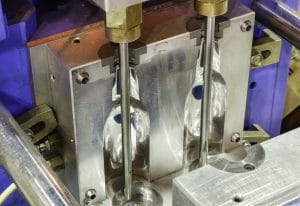 Thermal management takes on many different roles in many different industries, but it’s important for companies that operate in any realm to remain operational. Some of the most common aspects of thermal management include cooling the electrical enclosures related to advanced technologies. The advancement of technology has touched every industry to significant degrees, and the need for thermal management solutions to properly maintain that technology has grown increasingly more pronounced. In some industries, however, thermal management also takes on much more significant roles. For instance, in the molding industry, thermal management and the rapid removal of heat are central to a company’s main operations.
Thermal management takes on many different roles in many different industries, but it’s important for companies that operate in any realm to remain operational. Some of the most common aspects of thermal management include cooling the electrical enclosures related to advanced technologies. The advancement of technology has touched every industry to significant degrees, and the need for thermal management solutions to properly maintain that technology has grown increasingly more pronounced. In some industries, however, thermal management also takes on much more significant roles. For instance, in the molding industry, thermal management and the rapid removal of heat are central to a company’s main operations.
The natural methods of modern heat transfer
Modern thermal management takes on many different roles, but thermal management solutions are often similar. These days, some of the most common types of electrical thermal management solutions involve the use of streamlined, natural heat transfer methods. Compared to traditional air conditioning or air compression techniques, the practice of transferring waste heat is much more efficient and easily manageable. In electrical cooling applications, this involves utilizing an eco-friendly cooling fluid that’s able to absorb electrical waste heat without allowing the temperature around it to rise. The fluid can then transfer the heat efficiently to a heat depository, such as a heat sink, in order to release the heat and continue its cycle of heat transfer.
Making use of heat exchanger technology
The modern heat exchangers that companies rely on more heavily these days are designed specifically to make electrical thermal management more efficient and productive. For example, transferring heat instead of using chilled air to lower its temperature is a much more energy-efficient process. It doesn’t require power to generate chilled air, nor to circulate it continuously through various electrical enclosures. In addition, the mechanical aspects of heat exchangers are significantly more simplified than older solutions, and don’t require as much or any routine maintenance or repairs. In the plastic molding industry, the same innovative aspects of heat exchanger technology can also be utilized for much more than just electrical cooling processes.
Boosting the quantity and quality of yields
In the plastic molding industry, thermal management is key to the production process. After superheated material is poured into the mold, the heat must be rapidly and evenly removed to cool the mold. The basic concepts of rapid heat transfer are essential to this process, and with specialized heat exchangers known as custom thermal pins, companies can benefit greatly from the more advanced and streamlined thermal management capabilities. Thermal pins not only rapidly remove heat to boost the quantity of molds, but are also isothermal to remove heat evenly and boost the quality of each yield.
For more information about how custom thermal pings boost yields for molding companies, call Noren Custom Thermal Solutions in Taylor, TX, at 866-936-6736.



